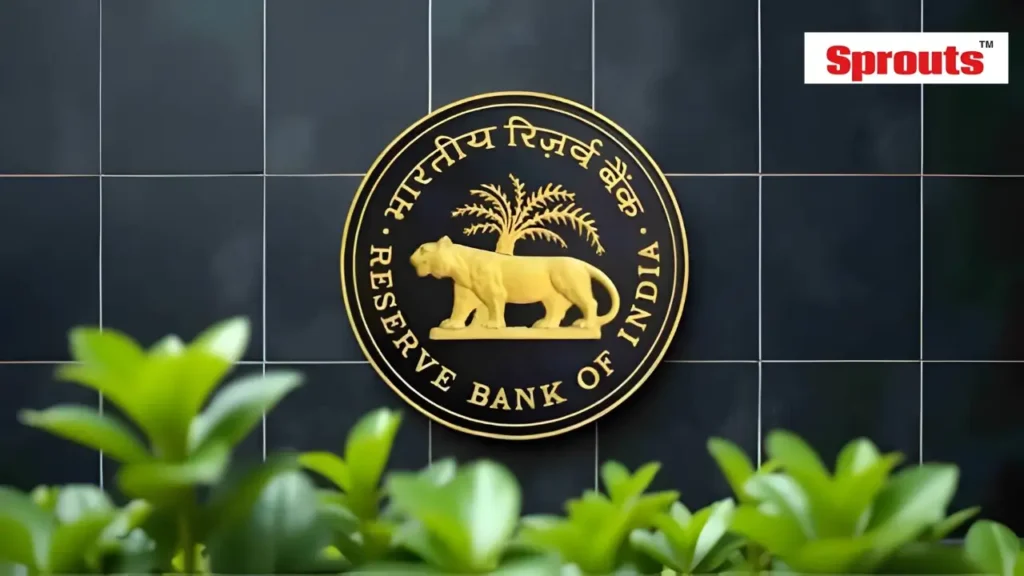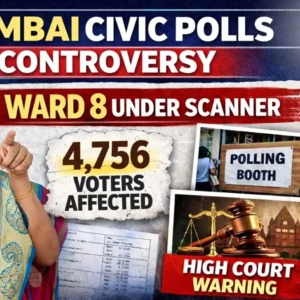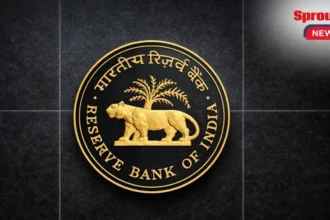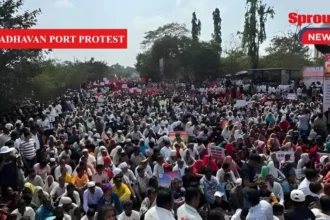Unclaimed Deposits in India Cross ₹78,000 Crore: Sprouts News SIT Exposes Banking Accountability Crisis
• Welfare Scheme Funds Found Dormant in Major Banks
• Government’s “100 Days–100 Pays” Scheme Fails to Deliver Results
• Audit Red Flags: How Regulatory Oversight Collapsed
A Sprouts News SIT investigation exposes India’s growing unclaimed deposit crisis, with over ₹78,000 crore lying idle across nationalised and private banks. The probe reveals dormant welfare and military funds, audit lapses, and irregularities in RBI’s UDGAM portal. Despite the government’s “100 Days–100 Pays” initiative, accountability remains elusive. Experts are calling for a CBI-led forensic audit to trace how welfare and institutional deposits vanished into the system without recovery or disclosure.
- Unclaimed Deposits in India Cross ₹78,000 Crore: Sprouts News SIT Exposes Banking Accountability Crisis
- • Welfare Scheme Funds Found Dormant in Major Banks
- • Government’s “100 Days–100 Pays” Scheme Fails to Deliver Results
- • Audit Red Flags: How Regulatory Oversight Collapsed
- Unclaimed Deposits Soar Beyond ₹78,000 Crore — A Systemic Breakdown in Bank Accountability Revealed
- Dormant Funds and the DEAF Trap: What the Data Shows
- Welfare-Funds Forgotten: How Public Money Went to Sleep
- The Portal Meant to Unlock Funds Became Another Barrier
- Why Banks Were Incentivised — and Why It Failed
- Audit, Oversight & Forensic Questions: Regulator Failures
- Implications for Policy-Makers & Citizens
- Conclusion and Demand for Full-Scale Investigation
Click Here To Download the News Attachment
Unclaimed Deposits Soar Beyond ₹78,000 Crore — A Systemic Breakdown in Bank Accountability Revealed
The scale of unclaimed deposits held by banks is staggering: the Reserve Bank of India (RBI) reported over ₹78,213 crore lying dormant as of March 2024. This article by the Sprouts News Special Investigation Team (SIT) examines how billions meant for welfare schemes, charities and public institutions vanished into the Depositor Education and Awareness Fund (DEAF), highlighting institutional failures and demand for a full forensic probe.
Dormant Funds and the DEAF Trap: What the Data Shows
Unclaimed deposits are defined as savings, current or term deposit accounts that remain inactive for 10 years or more and are then transferred to the DEAF. According to official figures, such deposits across scheduled commercial banks grew by 26% in one year, by end March 2024. The portal UDGAM (Unclaimed Deposits – Gateway to Access Information) was launched in 2023 to allow search of these dormant funds.
The categorisation of such deposits is simple: after two years of inactivity the account becomes inoperative, and after a total of 10 years (including no transactions or maturity unclaimed) the bank must transfer the funds to RBI’s DEAF.
Welfare-Funds Forgotten: How Public Money Went to Sleep
Our investigation found that funds meant for welfare and public development are now part of this dormant pool. Schemes such as the Pradhan Mantri Gram Sadak Yojana in Goa, Jawahar Rozgar Yojana in Bihar, and the Employees’ State Insurance Corporation (ESIC) and Employees’ Provident Fund Organisation (EPFO) accounts in New Delhi, were unearthed as dormant.
Banks such as State Bank of India (SBI) and Bank of Baroda (BoB) appeared repeatedly as custodians of inactive accounts with spelling errors, duplicated scheme names and no oversight records. The sloppy data raises questions: were these genuine accounts or placeholders created by banking staff?
The result: tens of crores of rupees of public money lying unclaimed for years.
That raises urgent accountability issues: if prominent institutions like ESIC and EPFO fall into this trap, ordinary citizens have little hope of retrieving their funds.
The Portal Meant to Unlock Funds Became Another Barrier
In August 2023 RBI’s UDGAM portal was touted as a “one-stop” platform for checking unclaimed deposits across banks. However, our scrutiny shows the portal creates multiple roadblocks.
Registration requires mobile number, password, OTP, captcha, then detailed identity proof such as PAN or driver’s licence — documents some accounts opened decades ago may not have. Even after that, search results give references but actual claim processes still require bank branch visits, layered documentation and long timelines.
RBI’s own data shows over 8 lakh users registered and retrieved amounts via UDGAM. Yet that number is tiny compared to the scale of the dormant pool. The system invites queries but offers little for mass recovery.
Why Banks Were Incentivised — and Why It Failed
Earlier, the government launched the “100 Days–100 Pays” campaign in 2023, seeking banks to clear top unclaimed deposits. With limited success, the ministry launched another campaign on 25 October, offering banks a fee to locate rightful claimants. The question: will pay-incentives really translate to accountability?
Our internal whistleblower revealed that a banker flagged a WhatsApp list of “Top 50 DEAF accounts” in one region — the bulk appeared to be government funds transferred to the DEAF. If banks know about these deposits, why were they dormant for so long? Why were spellings mangled? What internal controls failed?
The logic of bank incentives must be scrutinised: if banks treat DEAF transfers as final and inert, there is no urgency to trace beneficial owners. The award scheme risks becoming a cosmetic fix unless governance reforms accompany it.
Also Read: MHADA Housing Scam: Seniors Cheated of ₹79 Lakh.
Audit, Oversight & Forensic Questions: Regulator Failures
Significantly, many of the dormant accounts belong to audited bodies: charities, foundations, public welfare schemes, even military flag-day funds. For example, an account labelled “Armed Forces Flag Day and Service Regimental Fund” lay untouched. What explains such institutional neglect?
The modality for transfer to DEAF was clearly spelled out in the DEA Fund Scheme, 2014. Banks are required to classify accounts, display lists, undertake nominee tracing and periodic review. Yet the default appears to be transferring deposits and walking away.
The central audit bodies — such as the Comptroller and Auditor General of India (CAG) — and banks’ internal audit departments must investigate whether funds were misclassified, whether scheme funds reached intended beneficiaries or if negligence or collusion was involved. The scale of dormant funds suggests systemic breakdown.
Implications for Policy-Makers & Citizens
For policymakers and regulators, the message is clear: the sleeping vault of unclaimed deposits is not just a financial problem, it’s a governance crisis. Over ₹78,000 crore of deposits lying idle points to weak nominee tracing, flawed KYC, deficient auditing and lack of institutional accountability.
For citizens, the issue is less abstract. If welfare scheme funds can slip into dormancy, private citizens are even more vulnerable. The portal and campaigns are useful only if claim mechanisms are effective.
Banks must publish regular dormant account lists, perform KYC updates, trace legal heirs, and proactively communicate with beneficiaries. The DEAF should not become a black-hole for public money.
Conclusion and Demand for Full-Scale Investigation
The dormant deposit pool amounts to a sleeping asset of staggering magnitude. When even audited government welfare funds are found in this list, the issue goes beyond administrative error — it signals systemic rot. A credible forensic investigation by the Central Bureau of Investigation (CBI) or equivalent must be considered to uncover how such funds were allowed to drift unattended.
This investigation by Sprouts News SIT calls for transparency, accountability and enforcement of nominee and heir-claims processes. Sleeping money may not be lost money — but unless touched, it remains invisible and unapplied to public purpose.


















